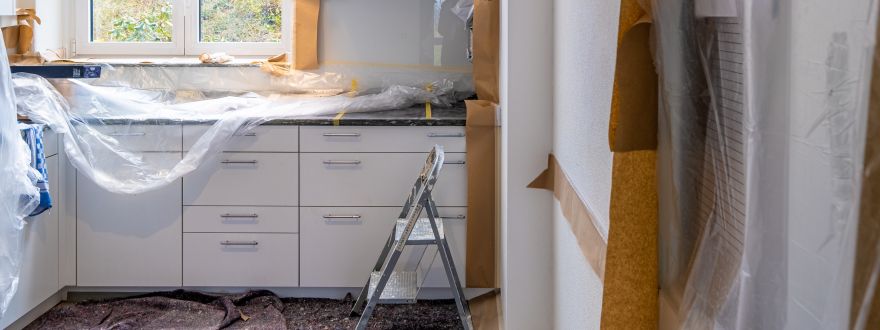
Home renovations can be a great way to build value in your home and make it your own. However, you can get so busy with renovations and the day-to-day details of life that you may forget to inform your insurance company, which could have serious implications. As many as 64% of homes are underinsured by an average of 27%. Though making coverage changes may increase your insurance rate, being underinsured could mean you are not sufficiently covered if you have to file a claim. Reviewing your home insurance policy regularly and talking with your insurance company can help ensure you have adequate coverage in place at all times.
Renovations that lower home insurance rates
If you are making changes that make your home safer, like updated electrical or plumbing systems, you could see lower rates after you and your provider evaluate your home renovation insurance needs.
Renovating or replacing your roof
A new roof may not be the most exciting home improvement, but it can save you money when it comes to homeowners insurance. Upgrading old appliances, like the HVAC system, and replacing your roof usually means a reduction in premium because your home is better protected with new materials. While most home policies cover roofs, some insurers use depreciation schedules based on the age of the roof to determine how much protection you get. The newer the roof, the more coverage you are likely to have from insurance.
Do I need to increase my homeowners insurance after renovating?
Whether you need to increase your homeowners insurance after renovating depends on the coverage you already have in place and the value and type of the renovation. When you choose an insurance policy, part of your insurance rate is established by your home’s square footage and the cost required to fix or rebuild it.
Insurance companies use valuation tools to determine how much coverage you need for the home structure. If the renovations increase that valuation, you may want to consider increasing your coverage, too. Without increased coverage, should a disastrous event occur, any improvements you have made may not be covered.
Another thing to consider is when significant improvements are made outside of your home, like adding a high-end shed or pool. They may not be covered unless your other structures coverage is sufficient. Be sure to let your insurance company know when you have done any type of work to your home so that it can perform a post-renovation valuation to accurately determine your new coverage needs.
Excerpts sourced from Bankrate.com, see the article in its natural habitat here.





